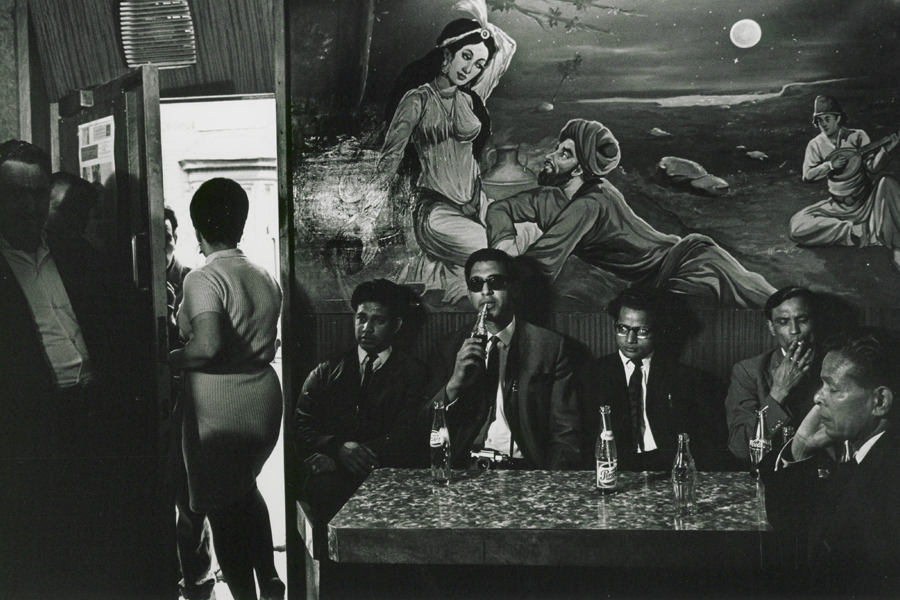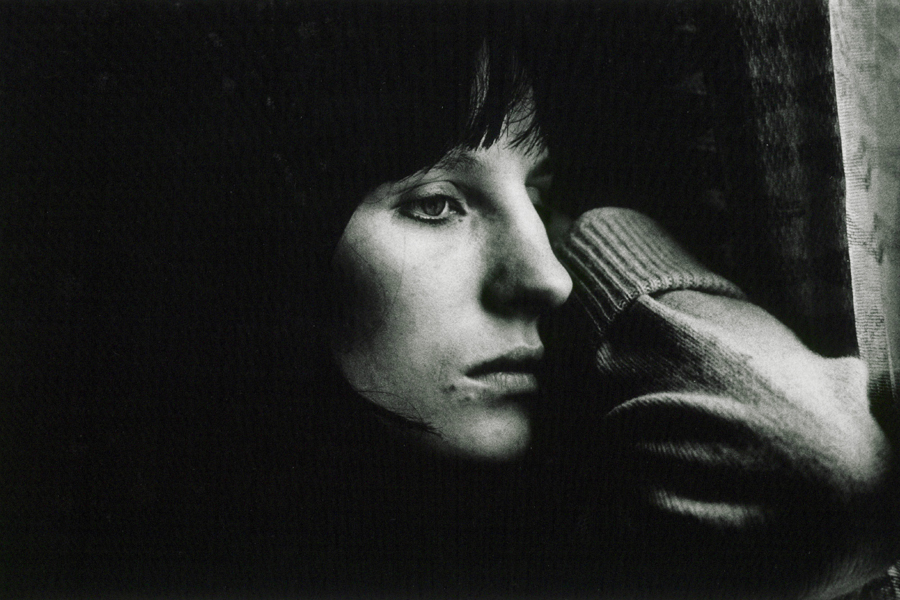2014 marked fifty years since the pioneering Centre for Contemporary Cultural Studies (CCCS) was founded at the University of Birmingham. A research project looking at the achievements and legacy of the Centre saw the creation of an archive of CCCS material, now housed in the Cadbury Research Library. Amongst material donated by ex-staff and students was an exciting and unexpected discovery: a series of remarkable photographs and over 3000 negatives made by American photographer and filmmaker Janet Mendelsohn in the late 1960s as part of her studies at the Centre.

Janet Mendelsohn used photography as a tool for cultural analysis, focusing on life in Birmingham’s inner-city district of Balsall Heath, then fraught with controversy due to poverty, poor housing conditions, increasing immigration and a prominent sex industry. She documented everyday encounters between African-Caribbean, Irish and south-Asian immigrants in Balsall Heath. Frenetic street scenes are interspersed with more intimate shots from inside the area’s pubs, cafés and living rooms. The photographs are a record of a place scheduled for destruction and redevelopment. We see a physical landscape that has literally crumbled – rows of houses bookended on either side by demolition sites; loose bricks of a wall that have become makeshift toys for a group of young children.
Mendelsohn clearly became extraordinarily close to her subjects – never more so than with Kathleen, a 24-year-old prostitute who worked in Balsall Heath. Mendelsohn photographed Kathleen doing domestic chores at home, on a visit to see her mother, in bed with her lover-cum-pimp and at the birth of the couple’s second child together. Interviews with Kathleen, her friends, family and acquaintances accompany the images, providing a highly personal perspective on activities such as prostitution that were being widely demonised by the press. Mendelsohn’s images and texts critique the press’ hysteria by representing the humanity of her subjects as well as the social conditions and structures that contributed to the situation.

The photographs are in keeping with the core ambition of the CCCS: to take seriously the cultures and everyday experiences of ordinary people. Whilst this may not seem radical today, in the context of the 1960s this was highly unorthodox. Mendelsohn’s photography demonstrates the Centre’s commitment to engaging with communities beyond the academic ‘ivory tower’. Our research project has attempted to stay true to this ethos. We have organised a series of partnerships with local organisations aimed at exploring Mendelsohn’s images. Activities have included exhibitions and events in a Balsall Heath café and a series of workshops asking local residents to produce a contemporary photographic response to the Mendelsohn archive.
The project is now culminating with the first major retrospective of Mendelsohn’s work, opening at the Ikon Gallery in Birmingham on 27 January. On the 30 January we will be staging a free symposium which takes Mendelsohn’s photographs as a starting point from which to explore the value of art that works with communities, as well as issues of gender and representation in photography. Thanks to a partnership with Ikon gallery, the works are also starting to attract attention in the art world. Finally, the work of this talented artist, academic and cultural critic is beginning to reach the audience it deserves.
This project has been generously funded by the Arts and Humanities Research Council and is a partnership between the University of Birmingham and Queen’s University Belfast.
‘Janet Mendelsohn - Varna Road’ will be on display at Ikon gallery 27 January - 3 April 2016.
For more information on the symposium on 30 January, please visit The Social Eye of Janet Mendelsohn.
Matthew Hilton, Professor of Social History
Chloe Lund, Development Officer, School of History and Cultures
Kieran Connell, Lecture in Contemporary British History, QUB.